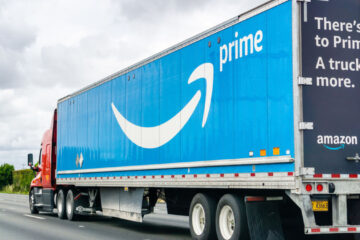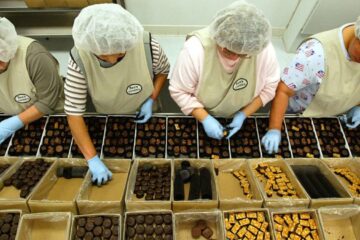They were hoping for 80%. Maybe 50%. What nobody expected was the dramatic rollback of all reciprocal China tariffs to 10%.
But that’s precisely what we got after a weekend of negotiations that involved Treasury Secretary Scott Bessent, U.S. Trade Representative Jamieson Greer, and Chinese officials, including China’s Vice Premier He Lifeng.
Related: Shocking China news sends Apple stock surging today
On Sunday, Bessent hit the airwaves to say that they’d reached an understanding with China, with more details coming soon. On Monday, Donald Trump’s administration revealed the specifics, including the slashing of reciprocal tariffs to 10% for 90 days to hammer out a comprehensive trade agreement. The 20% fentanyl tariff remains in place for now.
The news sent shockwaves through the markets, forcing participants to rethink their outlooks for the economy and revenue and profit growth at major U.S. stocks.
Many of these stocks, including Tesla, had been hit hard by the U.S. trade war with China.
Elon Musk’s Tesla has faced headwinds recently, including by tariffs on key components used to build vehicles.
Getty Images
Tesla’s Elon Musk didn’t favor tariffs, and Tesla wasn’t immune to the trade war
Tesla has suffered a series of setbacks this year, some of which are self-inflicted. The company’s sales have slipped in key markets, including China and Europe, because of Elon Musk’s high-profile role at the Department of Government Efficiency, or DOGE, and his support of President Donald Trump.
For example, Tesla’s (TSLA) first-quarter sales in Germany fell 62.2% year-over-year, according to KBA, and U.S. unit sales volume fell 9% from year-ago levels in Q1, according to KBB.
Related: Shocking China news sends Detroit Big 3 shares roaring
Musk isn’t a fan of sudden, hefty tariffs despite his relationship with Trump.
He reportedly tried to dissuade Trump from imposing them, but he lost the battle when the President announced harsher-than-expected reciprocal tariffs in February and on Liberation Day, April 2.
A 25% tariff was placed on Mexico and Canada in February, and a 25% tariff on autos was placed in early April. A tit-for-tat trade battle with China in April resulted in Chinese reciprocal tariffs of 145% and China’s imposition of a 125% tariff on U.S. goods.
“I think you need to be careful with tariffs,” said Musk on The Joe Rogan Experience in February.
Tariff proponents argue that they’re the best way to strong-arm manufacturing back to the United States. Opponents argue they’re a consumption tax that will slow the economy because of price increases.
Businesses were hit hard by the Liberation Day tariffs, and despite Trump pausing them for 90 days on April 9 to shore up markets, many companies were forced to rethink their outlooks amid uncertainty over how eventual trade deals may shake out.
Tesla manufactures its U.S. vehicles within America, making it more insulated to tariffs than rivals like GM and Ford. However, it still relies heavily on parts made overseas, and those parts have become more expensive following tariffs.
“If that part [auto parts] is suddenly twice as expensive, it messes everything up,” said Musk.
Related: Fed rate cut bets hammered by U.S.-China tariff truce
America imports various auto parts, from body parts to brakes, totaling $159.6 billion in 2021. According to AutomarketAftermarket.org, over 50% of auto part imports came from Mexico, Canada, and China.
According to the White House, only a quarter of the vehicle content within the 16 million cars sold in America last year was sourced domestically.
An American University’s Kogod School of Business study suggests between 13% and 20% of Tesla vehicles consist of parts made overseas.
“As a U.S. manufacturer and exporter, Tesla encourages USTR to consider the downstream impacts of certain proposed actions taken to address unfair trade practices,” wrote Tesla in a letter to the White House in March.
Elon Musk also weighed in on tariffs during Tesla’s first-quarter earnings conference call in April.
“I’ve been on the record many times saying that I believe lower tariffs are generally a good idea for prosperity, but this decision is fundamentally up to the elected representative of the people being the President of the United States,” said Musk. “So, you know, I’ll continue to advocate for lower tariffs rather than higher tariffs, but that’s all I can do.”
Now that the pause with China on trade has passed, reducing the tariff headwind, investors are reconsidering their forecasts across the industry, including Tesla.
Tesla stock is up 7% at 11:15 a.m. EST.
Related: Veteran fund manager unveils eye-popping S&P 500 forecast


